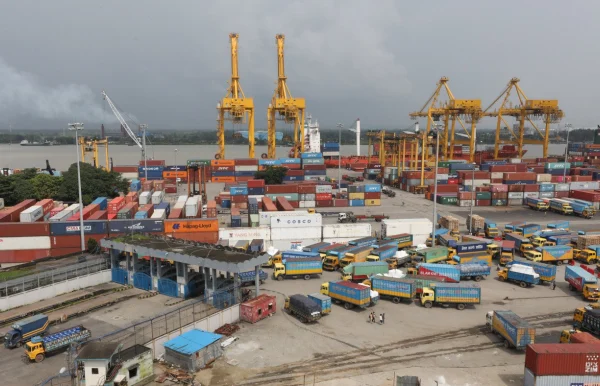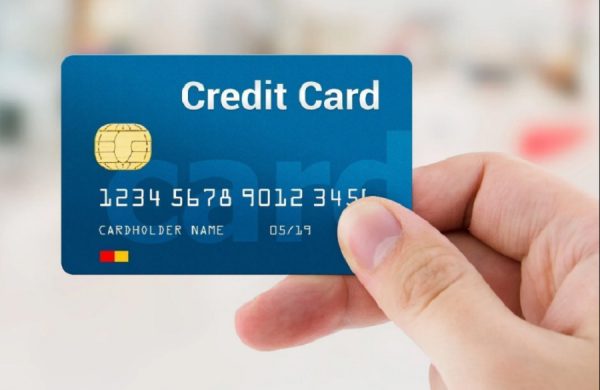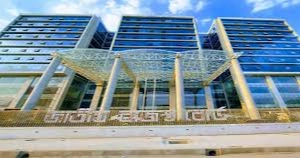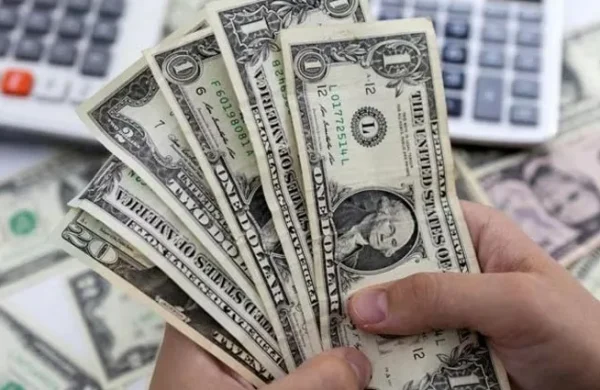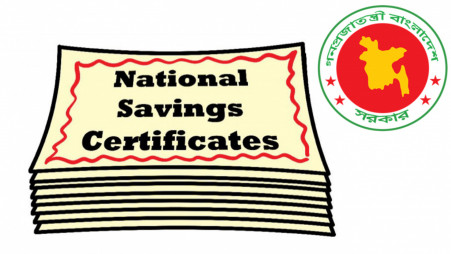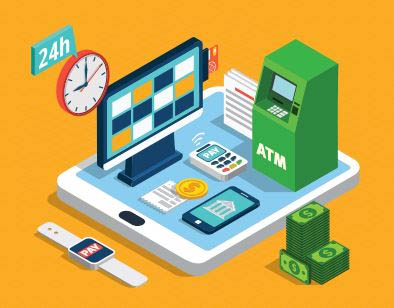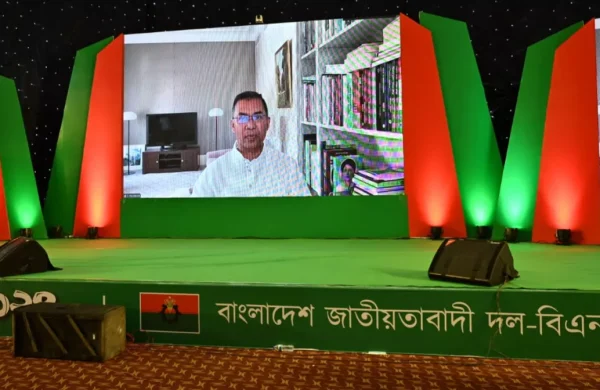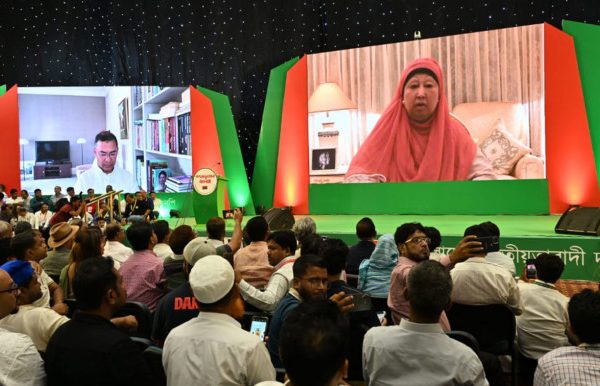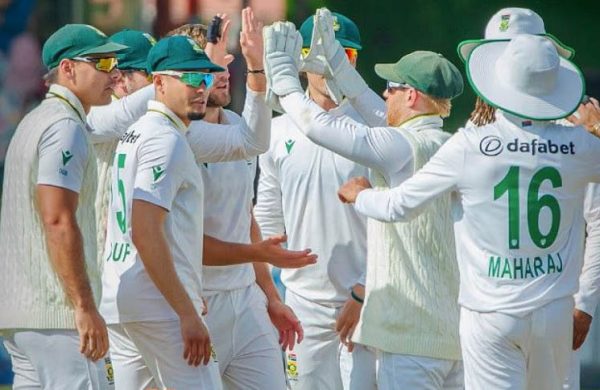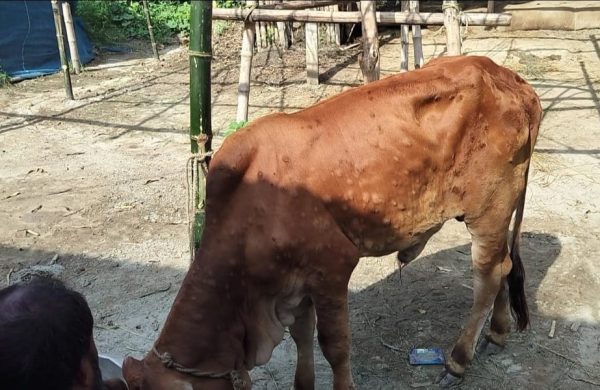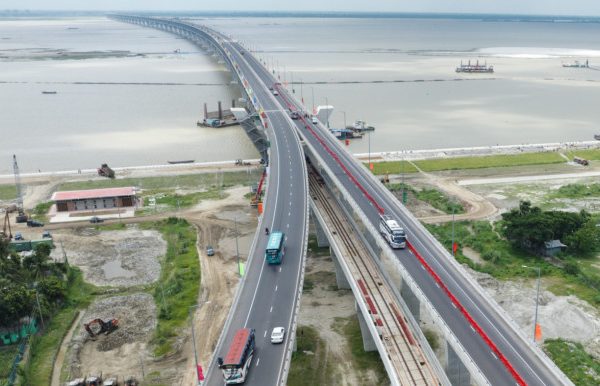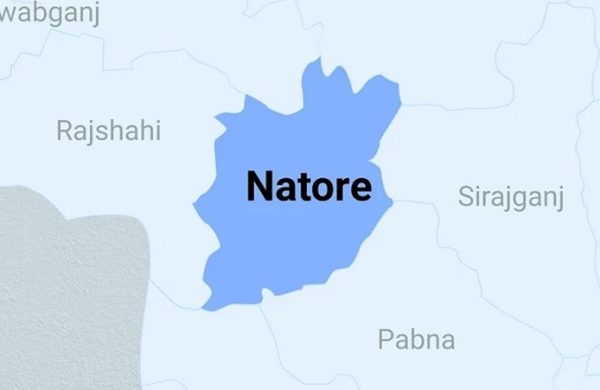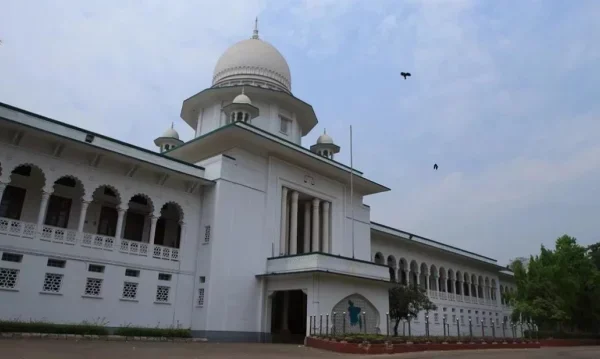Chaos in dollar market again
- Update Time : Thursday, August 1, 2024
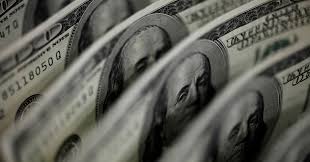
TDS Desk:
After remaining stable for almost two months, the dollar market has become volatile again amid the ongoing unrest over the student movement.
In the open market or at money exchanges, the dollar price has jumped by Tk5-6 in just two days, reaching Tk124-125 on Wednesday. To control the open market rate, the Bangladesh Bank started conducting raids at various money exchanges from Tuesday. Two weeks ago, each dollar sold at Tk118-119.
In protest against the government crackdown on students during the movement, a section of expatriates has started a campaign to send remittances through informal channels instead of banking channels. In this situation, to prevent the growth of hundi, the Bangladesh Bank on Sunday verbally instructed banks to offer a higher exchange rate for the US dollar sent through formal channels. Consequently, banks are also buying remittances at a higher rate.
Currency traders said recently, many expatriates were selling the dollars they brought back with them when they returned to the country in the kerb market. However, with fewer people coming from abroad in the current situation, the supply of dollars has decreased. This has led to a shortage of dollars, resulting in an increase in its price.
Dr Ahsan H Mansur, executive director of Policy Research Institute (PRI), told that, “The dollar market has become volatile due to the ongoing unrest. None of us know when this unrest will stop. It is conceivable that the price of the dollar may increase further. As a result, the economy may fall into an extreme crisis.”
Prof Sayema Haque Bidisha, research director of South Asian Network on Economic Modelling (SANEM), told that, “A sustainable solution is needed for bringing in remittances. Currently, attempts are being made to bring in some money through artificial incentives, but how long will this continue? As long as there is a difference between the official dollar rate and the open market rate, this issue will persist.
“If the rate in the kerb market is higher, expatriates will send money through informal channel. Therefore, alternative strategies for increasing remittances need to be considered.”
She recommended introducing remittance cards and offering some benefits to those who send large amounts of remittances. There should be efforts to encourage expatriates to send remittances through legitimate channels.
To control the situation that arose nationwide due to the students’ quota reform movement, the government imposed a curfew starting from the night of 19 July. Consequently, banks were closed until 22 July. Due to the lack of internet connectivity, online banking transactions were also halted. After several days of suspended transactions, banking services resumed on a limited scale on 24 July, with many banks unable to conduct foreign transactions because of the slow internet.
On 24-25 July, transactions were conducted for only four hours, from 11am to 3pm. On Sunday to Tuesday this week, the Bangladesh Bank instructed banks to keep their branches open from 10am to 3pm, aligning with government office timings.
UNSTABLE DOLLAR MARKET
Money exchange houses in different places, including Dilkusha and Gulshan, are carrying dollars. Dollars are being sold at arbitrary prices due to the fear of raids and tension in supply. In some places, per dollar was sold for Tk124-125. People, including students and those seeking medical treatment, are desperately looking for dollars for various purposes. However, the dollar is not found at the desired level. The dollar is tight everywhere.
Two weeks ago, the dollar was traded between Tk118-119 in the open market. The price of cash dollars had been stable at this rate for several months.
Speaking to media, MS Zaman, president of the Money Changers Association, stated, “We are always committed to complying with central bank directives. On Wednesday, I visited various money exchanges and saw that they were selling dollars at the fixed rate of Tk119.”
Open market dollar seller Lokman Hossen told that the supply of dollars has decreased, causing the hike in its prices.
IMPACT ON EXPATRIATE INCOME
To restore stability in the foreign exchange market, the dollar rate was increased by Tk7 in one jump. On 8 May, a “crawling peg” was introduced, setting the intermediate rate of the dollar at Tk117, which was previously Tk110. Consequently, the dollar rate remained stable between Tk117 and Tk118, and the remittance inflow was increasing. However, new uncertainties have arisen regarding remittances due to the ongoing situation.
Remittances in the country fell significantly last week. Between 21 and 27 July, expatriate income came in at just $138 million. Between 19 and 23 July, banks were closed due to public holidays. Apart from this, there was no broadband internet service for five consecutive days and mobile internet service for ten days. Additionally, a curfew has been in force since the night of 19 July.
According to the latest Bangladesh Bank data, $400-500 million came in remittance sent by expatriate Bangladeshis in the first three weeks of this month. Of this, between 1 and 20 July, $1.429 billion, and up to 27 July, $1.567 billion in remittances was received. The country received record remittances of $2.25 billion in May and $2.54 billion in June after the appreciation of the dollar.
SMALL BANKS IN TROUBLE
To boost remittance inflow, the Bangladesh Bank on Sunday verbally instructed some banks to offer a higher exchange rate for US dollars through formal channels. As a result, some banks are buying dollars by raising the rate of remittances to Tk120.
As a result, the banking sector is seeing unhealthy competition as some banks, especially the big ones, are offering higher dollar rates for remittances while the small ones are at a disadvantage. However, banks are not selling many dollars to individuals other than their regular customers. Only four to five big private banks are now said to have a monopoly on dollar trade.
State-owned banks mostly use dollars for government imports, but the government does not pay higher than the official rates. So, these banks are unable to buy dollars at higher prices, unlike the private ones.


